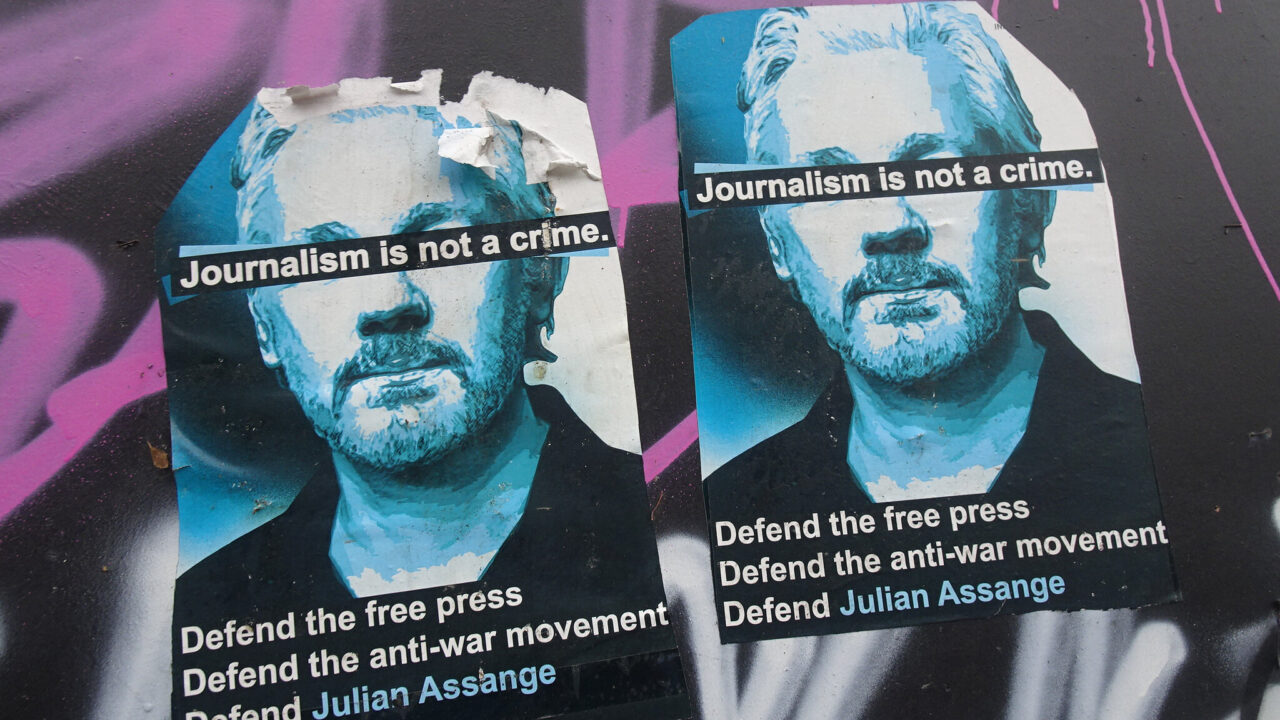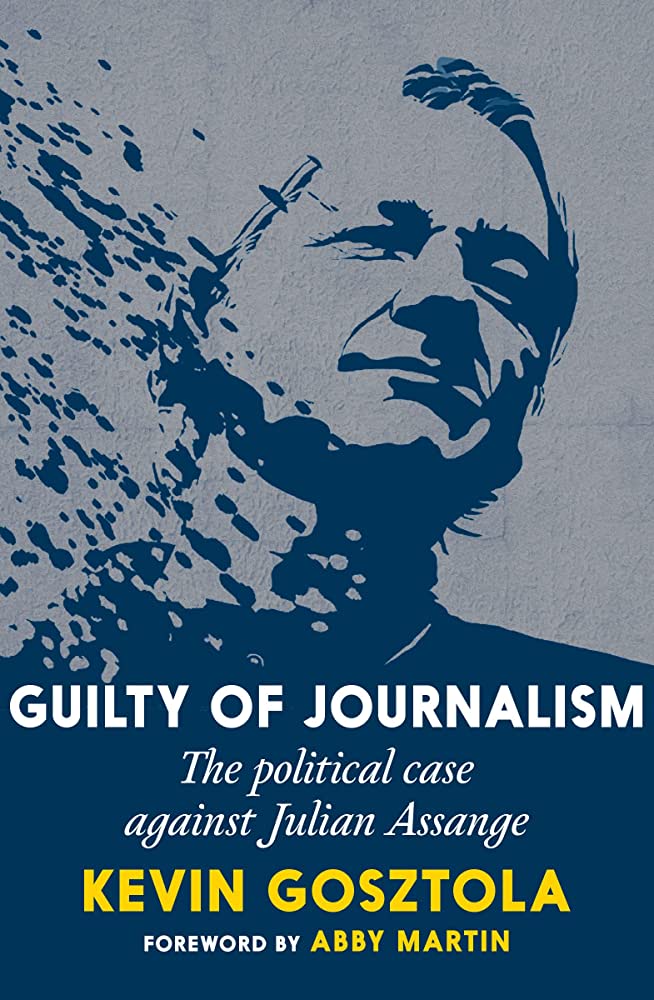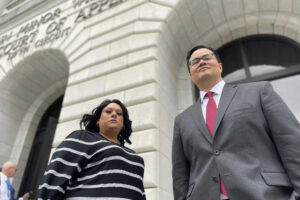Book Excerpt: “Guilty of Journalism”
How the FBI relied on an Icelandic criminal and diagnosed sociopath to indict Julian Assange, and met unusual resistance from the Icelandic government. Protest posters demanding the release of Julian Assange hang in Ireland. Michael Coghlan via Flickr / CC BY-SA 2.0
This is Part of the "The Persecution of Julian Assange" Dig series
Protest posters demanding the release of Julian Assange hang in Ireland. Michael Coghlan via Flickr / CC BY-SA 2.0
This is Part of the "The Persecution of Julian Assange" Dig series
Adapted from “Guilty of Journalism: The Political Case against Julian Assange,” published by Seven Stories Press and Censored Press.
In their 2020 updated indictment against the WikiLeaks founder, Julian Assange, United States prosecutors did not name Federal Bureau of Investigation (FBI) informant Sigurdur Ingi Thordarson. Instead, Thordarson, a citizen of Iceland, was referred to as “Teenager.”
The Justice Department (DOJ) withheld Thordarson’s identity, even though Thordarson was well known, and not as some helpless minor but as a known liar and diagnosed sociopath with a criminal record.
No longer a teenager, Thordarson was charged in 2015 with “rape, sex with minors, paying for sex with a minor, and instigating the prostitution of a minor.” He engaged in sex with nine underage boys and abused one boy 40 times for around two years when the boy was between the ages of 15 and 17, according to the Iceland Monitor.
Another Icelandic publication said Thordarson offered the boys money and “valuables” for sex, ranging from $200,000 to “vacations and expensive cars.” He “promised to hack the computer network of their schools to change their grades and attendance. When the young men refused to meet him, [Thordarson] harassed them systematically, pressuring them to perform sexual acts with him or to meet him.”
While volunteering for WikiLeaks, Thordarson embezzled around $50,000 from the organization’s online store and faced a sprawling 18-count prosecution in 2014 that Iceland police said involved “pretending to be Julian Assange online” to solicit donations, “tricking three men in Luxembourg into giving him” funds for a bank account in their name that was never opened, and “using the credit card of a company to which he did not even belong to buy goods and services.”
There is little reason to believe the DOJ was unaware of their cooperating witness’s history of deplorable acts, and yet U.S. prosecutors turned to Thordarson to prop up their claims that Assange engaged in hacking, which were necessary to convince District Judge Vanessa Baraitser that Assange had gone beyond standard news-gathering practices as WikiLeaks editor-in-chief.
It worked. Although Baraitser blocked the extradition on Jan. 4, 2021, her decision upheld every allegation from the Justice Department.
There is little reason to believe the DOJ was unaware of their cooperating witness’s history of deplorable acts, and yet U.S. prosecutors turned to Thordarson to prop up their claims that Assange engaged in hacking,
If the allegations from Thordarson were proven by U.S. prosecutors, the judge agreed that it would “take [Assange] outside any role of investigative journalism.” She believed Assange conspired with hackers to “further the overall objective of WikiLeaks to obtain protected information.
“Notwithstanding the vital role played by the press in a democratic society, journalists have the same duty as everyone else to obey the ordinary criminal law. In this case, Mr. Assange’s alleged acts were unlawful, and he does not become immune from criminal liability merely because he claims he was acting as a journalist,” Baraitser declared.
Months after the major decision, Bjartmar Alexandersson, a reporter for the Icelandic biweekly newspaper Stundin, interviewed Thordarson. They talked for nine hours in March and April.
Thordarson admitted that allegations against Assange were based on lies.
The second superseding indictment, filed on June 24, 2020, alleged that Assange met with Siggi Thordarson in early 2010, and that the 17-year-old provided Assange with “data stolen from a bank.” It further alleged Assange asked Thordarson to “commit computer intrusions and steal additional information, including audio recordings of phone conversations between high-ranking officials” of Iceland, such as members of parliament.
“On July 21, 2010, after Assange and Teenager failed in their joint attempt to decrypt a file stolen from [an Icelandic] bank, Teenager asked a U.S. person to try to do so. In 2011 and 2012, that individual, who had been an acquaintance of Manning since early 2010, became a paid employee of WikiLeaks and reported to Assange and Teenager,” the indictment claimed.
The indictment also claimed that Assange directed Thordarson in September 2010 to “hack into the computer of an individual formerly associated with WikiLeaks and delete chat logs containing statements of Assange.”
After a group of hacktivists organized under the banner of LulzSec engaged in a distributed denial of service (DDOS) attack on the CIA website in June 2011, Thordarson contacted the group. The indictment said he posted a video to YouTube that showed he was sitting by Assange to gain LulzSec’s trust.
By Aug. 23, 2011, Thordarson no longer wanted to be a part of WikiLeaks. He emailed the U.S. Embassy in Reykjavík at 3:30 a.m. and requested a meeting with embassy officials to become an FBI informant.
“After a quick search on the internet, I have [not yet] been able to find a reliable contact form to establish a meeting with a person regarding an ongoing criminal investigation,” Thordarson wrote. “The nature of the intel that can be brought to light in that investigation will not be spoken over email conversation.”
The DOJ omitted a key allegation Thordarson made in interviews with journalists. Thordarson, who used the aliases “Q” and “Penguin X” to communicate with LulzSec hacktivists, told journalist Ryan Gallagher that he “suggested” WikiLeaks “wanted assistance to find evidence of anti-WikiLeaks sentiment” within Iceland’s Ministry of Finance. The finance ministry stopped an “attempt by DataCell, a company that processes WikiLeaks donations, to purchase a large new data center in Reykjavík.”
“That was basically the first assignment WikiLeaks gave to LulzSec, to breach the Icelandic government infrastructure,” Thordarson asserted. Thordarson provided Gallagher “access to a pseudonymous email account,” which he contended the FBI created for him. He also shared documents and travel records from his work for the FBI.
Gallagher confirmed through chat logs and emails from 2011 that Thordarson communicated with LulzSec. “By claiming that he effectively solicited LulzSec to break into government computers,” Thordarson “implicated himself in a potential international criminal conspiracy, leaving WikiLeaks open to the allegation that it, too, was somehow involved.”
While Thordarson claimed Assange approved contact with LulzSec, as well as the “assignment” to “find evidence of anti-WikiLeaks sentiment,” WikiLeaks spokesperson Kristinn Hrafnsson told Gallagher if Thordarson contacted LulzSec, it was “highly unlikely” WikiLeaks staff, including Assange, knew what he was doing. Hrafnsson contended that Thordarson inflated the “role he played as a volunteer.”
Stundin reporter Bjartmar Alexandersson asked Thordarson if he told the FBI that Assange asked him to hack into an Icelandic government computer to obtain “audio recordings of phone conversations between high-ranking officials.” Thordarson said he did not.
“Then why does the indictment claim you said that?” Alexandersson asked.
“I can’t answer that,” Thordarson replied.
“Is it because you don’t want to, or is it because of the FBI you can’t answer?” Alexandersson added.
“I can’t answer that,” Thordarson insisted.
Alexandersson pressed. “Why can’t you answer that?”
“Because I’m not allowed to,” Thordarson declared.
During conversations with Alexandersson, Thordarson claimed he received “some files from a third party” who claimed to have recorded members of parliament. He offered to share the files with Assange but did not know whether the file contents actually contained the alleged audio recordings.
“OK. So [Assange] received these phone calls?” Alexandersson asked.
“At least he received some files. I never listened to them so I have no idea what was on there,” Thordarson answered.
“You didn’t feel like checking it out to hear it? How large was this file?” Alexandersson responded.
“I don’t remember. I was doing something at the time so I thought I’d just throw it at Julian, and he’d go over it,” Thordarson said.
Thordarson also admitted Assange never “instructed or asked him to access computers in order to find any such recordings.”
Going back to Ryan Gallagher’s reporting, Thordarson said the security chief for the U.S. embassy in Reykjavík asked him about the information he allegedly had on the same day he sent his email.
Thordarson informed the security chief it was related to the U.S. investigation into WikiLeaks.
Apparently, the security chief denied there was such an investigation yet still asked Thordarson to come to the embassy for a meeting. When Thordarson arrived, he “showed staff a photocopy of Julian Assange’s passport” to bolster his allegations.
Thordarson was summoned less than 24 hours later. Upon Thordarson’s return, the security chief allegedly escorted Thordarson around Reykjavík to ensure they were not followed and then brought the informant to a four-star hotel called the Hotel Reykjavík Centrum. Two men with “American accents” and “FBI credentials” were waiting.
The FBI, according to Thordarson, “asked him a range of questions to ‘verify that [he] wasn’t full of bullshit.’” Thordarson recalled his chats with Sabu, or Hector Xavier Monsegur, who he did not know was an FBI informant. What Thordarson said about Sabu apparently helped him convince agents that he could be a credible source.
Thordarson admitted that allegations against Assange were based on lies.
Around this time, Icelandic authorities had given the FBI and Justice Department the cold shoulder. Nevertheless, over “four consecutive days” and at different hotels, FBI agents remained in Iceland. They met with Thordarson to question him about Assange, particularly his life at Ellingham Hall, a 10-bedroom rural estate in Norfolk owned by Frontline journalists’ club owner Vaughan Smith, where the WikiLeaks founder lived on bail as he fought extradition to Sweden.
Gallagher said Thordarson told him the FBI agents “wanted information about WikiLeaks’ technical and physical security and the locations of WikiLeaks’ servers; they asked him, too, for names of individuals linked to WikiLeaks, who might be open to becoming informants if approached by the FBI.”
The Ministry of Interior remained firm in its opposition to the FBI’s presence. By the end of August, the FBI was pressured to leave Iceland and find another country for a meeting with their new informant.
Kevin Gosztola is cofounder and managing editor of Shadowproof, an independent news outlet focused on systemic abuses of power in business and government, and the curator of The Dissenter newsletter.
Your support matters…Independent journalism is under threat and overshadowed by heavily funded mainstream media.
You can help level the playing field. Become a member.
Your tax-deductible contribution keeps us digging beneath the headlines to give you thought-provoking, investigative reporting and analysis that unearths what's really happening- without compromise.
Give today to support our courageous, independent journalists.








You need to be a supporter to comment.
There are currently no responses to this article.
Be the first to respond.